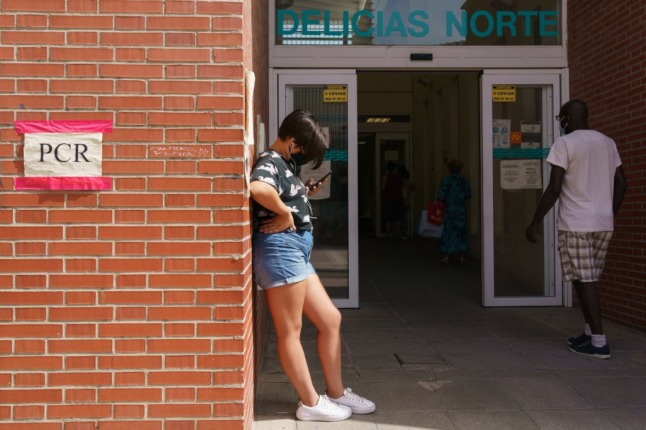If you’re holidaying in Spain this Easter, you may need a Covid test such as PCR or an antigen test to get back home. While some countries have relaxed all entry restrictions such as the UK, others such as the US still require all passengers to present a negative Covid-19 test result or documentation of recovery. Here’s everything you need to know about getting a Covid test in Spain.
READ ALSO: What are the Covid travel rules between Spain and the UK in April?
What are the Covid-19 rules for travel between the US and Spain in April 2022?
Where can I get a PCR or an antigen test in Spain?
Private clinics, laboratories, pharmacies – and in regions such as Madrid – even dental clinics all offer PCR and antigen tests.
If you’re staying at your hotel in Spain, you could ask the staff if they can recommend somewhere, and if you want to ask in Spanish, you should say ¿Dónde me puedo hacer una prueba PCR? (Where can I get a PCR test?) or ¿Dónde me puedo hacer una prueba de antígeno? (Where can I can an antigen test?).
Remember that self-administered antigen tests are not valid for travel. You will have to book one at a registered clinic or laboratory.
There’s also using Google or Google maps to find the closest facility offering PCR tests.

Photo: Cesar Manso/AFP
How much does a PCR test cost in Spain?
According to the Spanish consumer association OCU, the average price of a PCR test in Spain is €120, although in some clinics it can be as high as €200. You can also find places online where you can book them for around half the average at €60. It’s worth shopping around online and booking in advance to get the best deal.
You may find results in English but it’s worth googling “precio de prueba PCR” (price of PCR test) and then your location to find all available nearby clinics and labs that perform the tests.
In January, the Spanish government set the price of antigen tests bought at pharmacies to €2.94 each. Be aware though, they will cost considerably more if you book them at a clinic, usually around €25-€40.
Is there anything else I should know about getting a PCR or an antigen test in Spain?
The PCR sample is collected from the patient’s nose and throat with a swab and sent to the laboratory for analysis. Sometimes it’s taken from the nose and not the throat or the other way round. The PCR test doesn’t hurt but it does feel fairly unpleasant.
You’re likely to get your results back within 24 hours.
If you test positive you will not be allowed to travel. In March 2021, the Spanish government announced that asymptomatic people or those with mild symptoms would no longer have to quarantine for seven days.
If you do test positive, your test will not be repeated when you feel better. If you want to repeat it, you will have to do another PCR test and pay again.
If you develop Covid-19 symptoms while in Spain, the country’s official Travel Safe tourism page recommends “avoiding any physical contact with another person”.
“Next, inform the local healthcare authorities immediately via the information helpline of the region you are in“. If they deem you have Covid symptoms, public health workers will offer you the PCR test free of charge.
“In all cases, Spanish emergency healthcare services are guaranteed and provided at hospitals and healthcare centres,” Spain’s Tourism Ministry confirms.
A couple of regions in Spain such as Andalusia and Murcia offer access to free insurance with Covid-19 coverage for international travellers and tourists. Several other regions like the Canary Islands and the Balearics did offer this service but have not extended it.
READ ALSO: Which regions in Spain offer free insurance to tourists who get Covid-19 while on holiday?



 Please whitelist us to continue reading.
Please whitelist us to continue reading.
Member comments